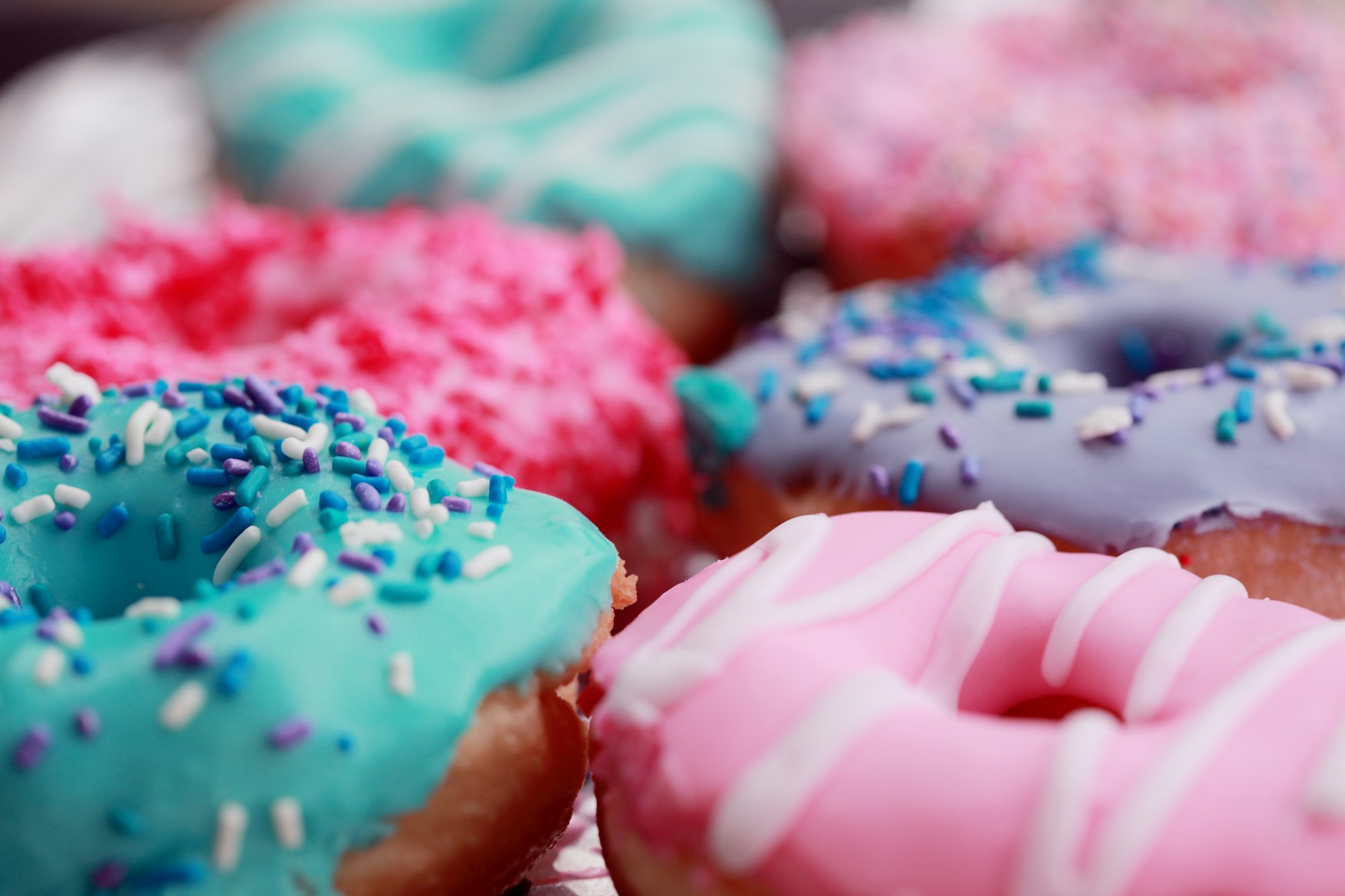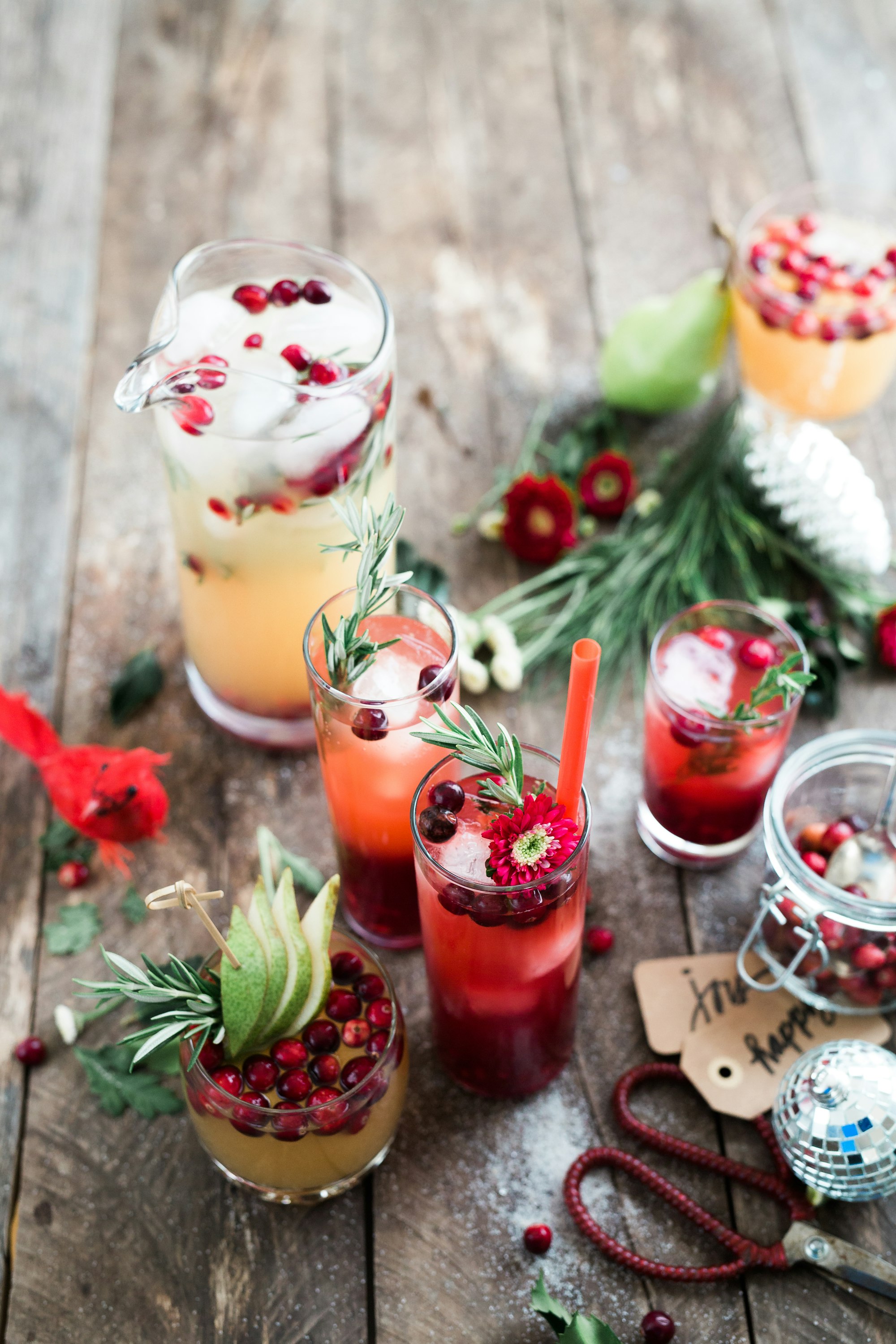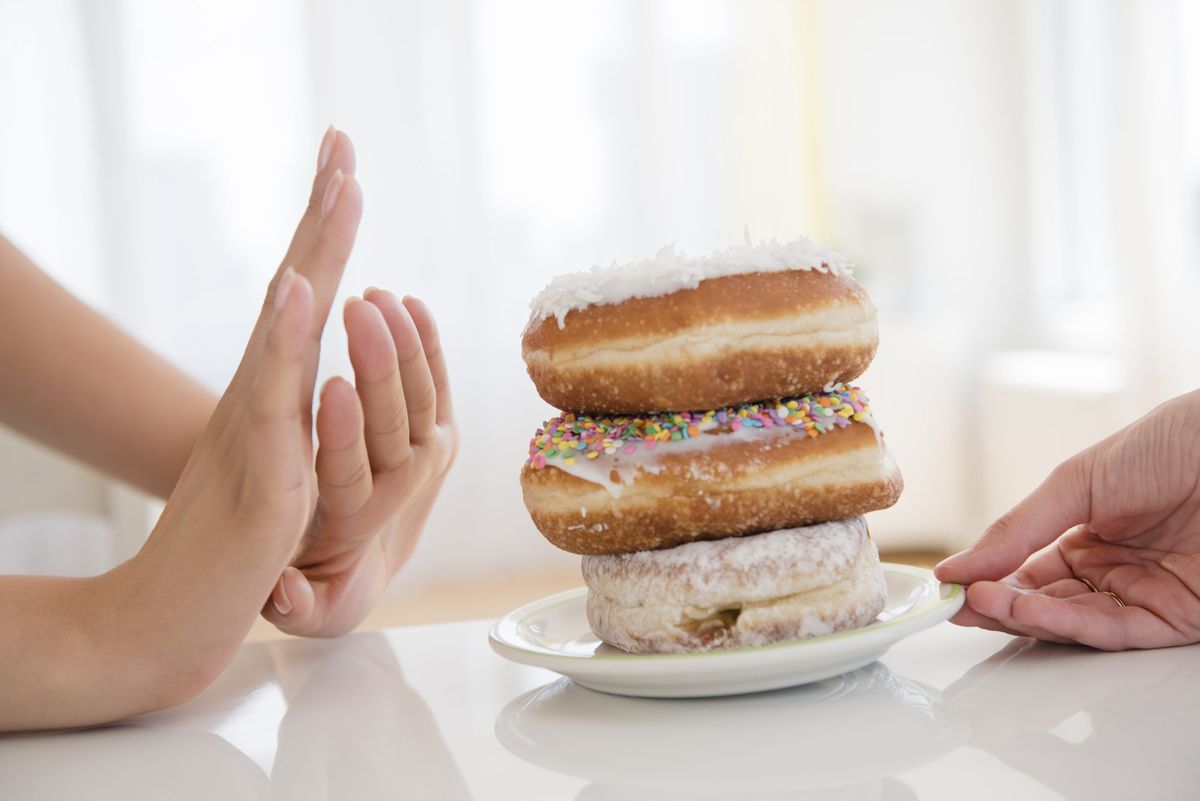
What happens when we cut out the processed sugar
This time of year, as we begin to home in on Christmas, the bakeries are humming along even if they are only in our own kitchen. When I was a kid, the annual production of my mother's ridiculously good Toll House cookie recipe was one of our great family joys. There are certain Christmas treats and sweets so good that to overdose on them is worth the pain. If you love sugar like I have always loved sugar, you know why the holidays are so magical. That first bite into your favorite Snickerdoodle...well, the angels sing on high while I ride my sugar high.
Yeah. And some set up permanent pup tents where the zipper's already straining. Been there.
For so many of us, the question of whether or not to give up sugar - and in this case I am addressing processed, not natural, which I will also touch on - becomes one of not about just weight loss , but one of survival vs. thrival. If you're over fifty as I am, and your waistline is a waste of time, and you're concerned not just with calories but more importantly, the quality of your food, stay with me here. This was the year I finally divorced my sugar habit. I've learned some things on that journey. Some might help you consider whether sugar is something to be reduced, eliminated or what the hell, why not? You only live once, right?
First, a little background. Almost thirty-four years ago I was obese. The changes I made to my diet in 1987 resulted in an 85-lb weight drop that I have maintained within about five to ten pounds. That's no mean task. However, I have always had a pernicious sweet tooth. My love of donuts and chocolate almonds is legendary.
My choice of work which takes me all over the world has meant that some of the easy-to-carry products on my adventures all too often also have too much sugar in them. It's not just the Cadbury bars I love to munch on the sides of tall m0untains. It's the nut butters and dried fruits and granola bars, all of which are loaded with processed sugar.
I used to tell myself I needed the energy boost. Well, sort of. What I didn't need was the exhaustion that followed, which led to more sweets. Rinse, repeat. I'll bet you can relate. Every time I see a billboard ad showing a cup of coffee and three icing-covered breakfast buns, all I can think of is that does not look good, as advertised. I can handle the calories. But that's not the point.
This past year, circumstances once again forced me to say goodbye to my drug of choice (chocolate, thank you, among others ) and all the other sugarplums that I was using to assuage my Covid-19 quarantine blues. What happened, how I did that, and how my body has benefited are this story.

A final goodbye to the sugar blues
As I write this, it's been 166 days since I had chocolate. Sugar. A candy bar, a donut. I've never gone that long without sugar in my entire 67 years. The only sugar I allow myself these days is a bit of honey in my tea or on my oatmeal. That's it, other than fruit.
In 2018, a roommate brought cookies and donuts and candy back into my house. Sugar became a habit again after thirty one years. I began to lose that battle all over again, even as I worked hard at other healthy habits. Here is where Life gets in the way of Habits.
In the early days of quarantine as I was packing on twenty pounds I haven't seen for 33 years, the idea of eschewing chewing chocolate almonds entirely would have been unimaginable. Sugar has always been my go-to for safety, succor and, unfortunately, with all the negative side effects that come with this very bad actor.
Then my kidneys got infected, I had stones, was hospitalized. Six days later another kidney stone caused me to flip my car at high speed. Stopping more stones suddenly became vastly more important than any chocolate almond fix. The resulting lessons about foods I could no longer eat were no longer negotiable. I launched myself into research, worked with a nutritionist, and that was all she wrote. Among many other things, processed sugar was off the menu, not just because of the stones but other conditions, which vary with each of us.
One is inevitable, and we are all subject to it: you and I are getting older. I'm already there.

As I age, I can't continue to eat sugar. Here's why. Sugar is no friend to the aging brain.
From the article:
When the body processes sugar, glucose (blood sugar) levels can increase, thereby activating the hypothalamus in the brain. Overall, the brain treats sugar as if it were an invasive like a virus. This sort of response places wear-and-tear on the brain, thereby decreasing long-term cognitive abilities. Refined sugar may even affect short-term memory.
A recent 2012 study, involving 1,230 seniors between 70 and 89 years old, found a strong link between food choices and cognitive impairment. The study concluded a high-sugar diet increased the risk of cognitive issues 1.5 times more than participants whose diets were low in sugar. (author bolded)
As an athlete, and an aging one, I can no longer afford to use a substance which interferes not only with my physical performance, but also my cognitive abilities. It's not worth it, at least to me. Before this summer, I counted on my workouts to clear my body and brain of sugar. I was wrong. I was aging myself, my body and my brain rapidly.
But wait, this is holiday season, from Hanukkah to Happy New Year, from Kwanzaa to any excuse to open that next box of sweets to the next bottle of Bailey's. Right?

Why on earth not treat ourselves, especially after such a tough year?
Because how you and I treat ourselves could defeat ourselves. That's the point. It's not just short term, either. And in such a year, we need to take the best possible care of ourselves, for the stresses and anxieties that we're juggling are not served by a brain under attack by bad foods.
As for the season that's upon us:
Much of alcohol is notoriously high in sugar. Through the holidays, we tend to indulge not only in sweets but also in drinks such as Bailey's Irish Cream or cider, some of them with enough sugar in one drink to max out our daily recommended allowance. Which, if I may, some experts are already saying is too much.
On top of this, many of us are on prescriptions, and on top of that we take over-the-counter meds, many of which have adverse effects on our bodies and brains. To say nothing of how those OTC products can have deleterious interactions with what the doctors prescribe. Layer a pandemic, reduced activity and all the other insults on our poor bodies, this holiday season could be disastrous for more reasons than our thinning wallets and thickening waistlines.

No wonder we're in a fog. It ain't just the grog.
You and I are regularly bombarded with facts about sugar. We all know them. Yet we cannot give it up. Sugar was once accused of being as addictive as cocaine or heroin, a hyperbolic claim that doesn't stand up to scientific scrutiny. Sugar was crippling me and my body, but addiction is an exaggeration. It's a habit, a preference.
My July accident provided me with the perfect opportunity to do a complete reset. I had no clue at the time. I was just glad I'd been able to walk away from the wreck that was my car.
The impact of the rollover accident was stressful enough for me to lose my appetite entirely. That, combined with not being at all sure what I could safely consume, meant several months of eating little more than blueberries, unsweetened applesauce and tuna. I forgot to eat. The pounds slid off. Meanwhile, I got accustomed to living with a body and a brain which weren't being bombarded regularly with chocolate almonds and sweet tea and loaded coffee, which had become my crutches during Covid.
But my goodness, what was happening inside me was remarkable.
My thoughts were clearer. I had more energy. My moods improved. I didn't get tired off and on all day. Workouts always help my mood. Workouts without sugar were something else entirely.
To get a really good idea of what might happen if you give this is a shot, see:

Two months later, I was down more than twenty-five pounds. It was time to work with a nutritionist.
We sorted out my options. There weren't many, if I wanted to be blissfully healthy and symptom-free. Changing out my diet, just as it is for all of us, is a unique process which speaks to our metabolisms, age, activity levels, food preferences, allergies and physical conditions. And of course, they change as we age for many reasons, which is why so many folks expand as they gain years. They don't account for what else has shifted, which for some of us can be a great many things.
The allowed foods list, which was damnably short, at least included things like most berries, grapes, apples and bananas.
I had no idea what had been happening in my body, my taste buds, and my love affair with refined sugar.
We had quietly divorced.
After several months away from daily sugars, the chocolate and nut butters and dried fruit that kept my sugar high above the clouds, I found that a handful of plump blueberries did the trick nicely.
As Nature had intended.
A banana, same. Grapes, unbelievably sweet, now that they don't have to compete with a Snickers bar.
My favorite, however, is a big fat Honey Crisp apple, or even better, a ripened d'Anjou pear.
You and I are designed to love the sweetness offered by fruit, whose fructose is far healthier for us than the refined version of those sugars. To that:
:format(jpg):extract_cover()/https%3A%2F%2Fpocket-syndicated-images.s3.amazonaws.com%2Farticles%2F3495%2F1582568560_file-20180308-146697-nzrkvg.jpg)
This article, while written about our Down Under cousins, speaks to the value of consuming the fiber-rich and tasty fruits which may well reduce our appetites, satisfy our sugar cravings and help, um, move the mail.
Which for far too many Westerners is a severe issue, exacerbated by inactivity and a horrible diet. Something to be said for developing an apple habit.

My fridge is chock-full of veges, lean meats like chicken and fish, and eggs. There is a huge wooden fruit bowl on the counter which I empty regularly. I never leave my house without at least two apples in the car. Which brings me to the other thing that I didn't quite expect but don't really mind at all:
I can eat more, and my weight has stabilized at around 122.
Look, as I skate towards seventy, maintaining my weight at 122 (I'm 5'8 1/2 ) is a bit of a win. Sort of. Ya think?
A friend told me I could do this. I didn't believe him. But I did.
But kindly, this isn't just about the weight. This is a clear, un-fogged mind, a crisp thinking process, endless energy that doesn't crash me on the couch. The pleasure of enjoying foods the way Nature intended, and the ability, at long, long last, to say no to icing and ice cream and all such things, long my favorites, but never my friends.
This holiday season there will be no pies or cookies, nothing made of refined sugar at my Christmas table. Because my great gift to myself in this challenging year was a much brighter future, free of refined sugar, a happier, healthier body, a better brain, and more enthusiasm than the Energizer bunny.
I don't know what 2021 will bring. This year, at least one lasting and valuable change has done me a lot of good. Refined sugar is off the menu.
And there is a much healthier future ahead, even if I have to manage it masked.


Comments powered by Talkyard.